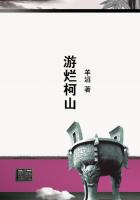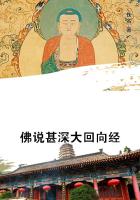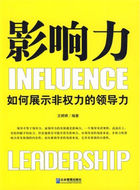So much for the double-name system in use among the Gypsies of England. There is something in connection with the Gypsies of Spain which strangely coincides with one part of it--the translation of names. Among the relics of the language of the Gitanos or Spanish Gypsies are words, some simple and some compound, which are evidently attempts to translate names in a manner corresponding to the plan employed by the English Romany. In illustration of the matter, the writer will give an analysis of Brono Aljenicato, the rendering into Gitano of the name of one frequently mentioned in the New Testament, and once in the Apostles' Creed, the highly respectable, but much traduced individual known to the English public as Pontius Pilate, to the Spanish as Poncio Pilato. The manner in which the rendering has been accomplished is as follows: Poncio bears some resemblance to the Spanish puente, which signifies a bridge, and is a modification of the Latin pons, and Pilato to the Spanish pila, a fountain, or rather a stone pillar, from the top of which the waters of a fountain springing eventually fall into a stone basin below, the two words--the Brono Aljenicato--signifying bridge-fountain, or that which is connected with such a thing. Now this is the identical, or all but the identical, way in which the names Lee, Lovel, and Stanley have been done into English Romany. A remarkable instance is afforded in this Gitano Scripture name, this Brono Aljenicato, of the heterogeneous materials of which Gypsy dialects are composed: Brono is a modification of a Hindoo or Sanscrit, Aljenicato of an Arabic root. Brono is connected with the Sanscrit pindala, which signifies a bridge, and Aljenicato is a modification of the Gypsy aljenique, derived from the Arabic alain, which signifies the fountain. But of whatever materials composed, a fine-sounding name is this same Brono Aljenicato, perhaps the finest sounding specimen of Spanish Gypsy extant, much finer than a translation of Pontius Pilate would be, provided the name served to express the same things, in English, which Poncio Pilato serves to express in Spanish, for then it would be Pudjico Pani or Bridgewater; for though in English Gypsy there is the word for a bridge, namely pudge, a modification of the Persian pul, or the Wallachian podul, there is none for a fountain, which can be only vaguely paraphrased by pani, water.
FORTUNE-TELLING
Gypsy women, as long as we have known anything of Gypsy history, have been arrant fortune-tellers. They plied fortune-telling about France and Germany as early as 1414, the year when the dusky bands were first observed in Europe, and they have never relinquished the practice. There are two words for fortune-telling in Gypsy, bocht and dukkering. Bocht is a Persian word, a modification of, or connected with, the Sanscrit bagya, which signifies 'fate.'
Dukkering is the modification of a Wallaco-Sclavonian word signifying something spiritual or ghostly. In Eastern European Gypsy, the Holy Ghost is called Swentuno Ducos.
Gypsy fortune-telling is much the same everywhere, much the same in Russia as it is in Spain and in England. Everywhere there are three styles--the lofty, the familiar, and the homely; and every Gypsy woman is mistress of all three and uses each according to the rank of the person whose vast she dukkers, whose hand she reads, and adapts the luck she promises. There is a ballad of some antiquity in the Spanish language about the Buena Ventura, a few stanzas of which translated will convey a tolerable idea of the first of these styles to the reader, who will probably with no great reluctance dispense with any illustrations of the other two:-Late rather one morning In summer's sweet tide, Goes forth to the Prado Jacinta the bride:
There meets her a Gypsy So fluent of talk, And jauntily dressed, On the principal walk.
"O welcome, thrice welcome, Of beauty thou flower!
Believe me, believe me, Thou com'st in good hour."Surprised was Jacinta;She fain would have fled;
But the Gypsy to cheer her Such honeyed words said:
"O cheek like the rose-leaf!
O lady high-born!
Turn thine eyes on thy servant, But ah, not in scorn.
"O pride of the Prado!
O joy of our clime!
Thou twice shalt be married, And happily each time.
"Of two noble sons Thou shalt be the glad mother, One a Lord Judge, A Field-Marshal the other."Gypsy females have told fortunes to higher people than the young Countess Jacinta: Modor--of the Gypsy quire of Moscow--told the fortune of Ekatarina, Empress of all the Russias. The writer does not know what the Ziganka told that exalted personage, but it appears that she gave perfect satisfaction to the Empress, who not only presented her with a diamond ring--a Russian diamond ring is not generally of much value--but also her hand to kiss. The writer's old friend, Pepita, the Gitana of Madrid, told the bahi of Christina, the Regentess of Spain, in which she assured her that she would marry the son of the King of France, and received from the fair Italian a golden ounce, the most magnificent of coins, a guerdon which she richly merited, for she nearly hit the mark, for though Christina did not marry the son of the King of France, her second daughter was married to a son of the King of France, the Duke of M-, one of the three claimants of the crown of Spain, and the best of the lot; and Britannia, the Caumli, told the good luck to the Regent George on Newmarket Heath, and received 'foive guineas' and a hearty smack from him who eventually became George the Fourth--no bad fellow by the by, either as regent or king, though as much abused as Pontius Pilate, whom he much resembled in one point, unwillingness to take life--the sonkaype or gold-gift being, no doubt, more acceptable than the choomape or kiss-gift to the Beltenebrosa, who, if a certain song be true, had no respect for gorgios, however much she liked their money:-Britannia is my nav;I am a Kaulo Camlo;
The gorgios pen I be A bori chovahaunie;














